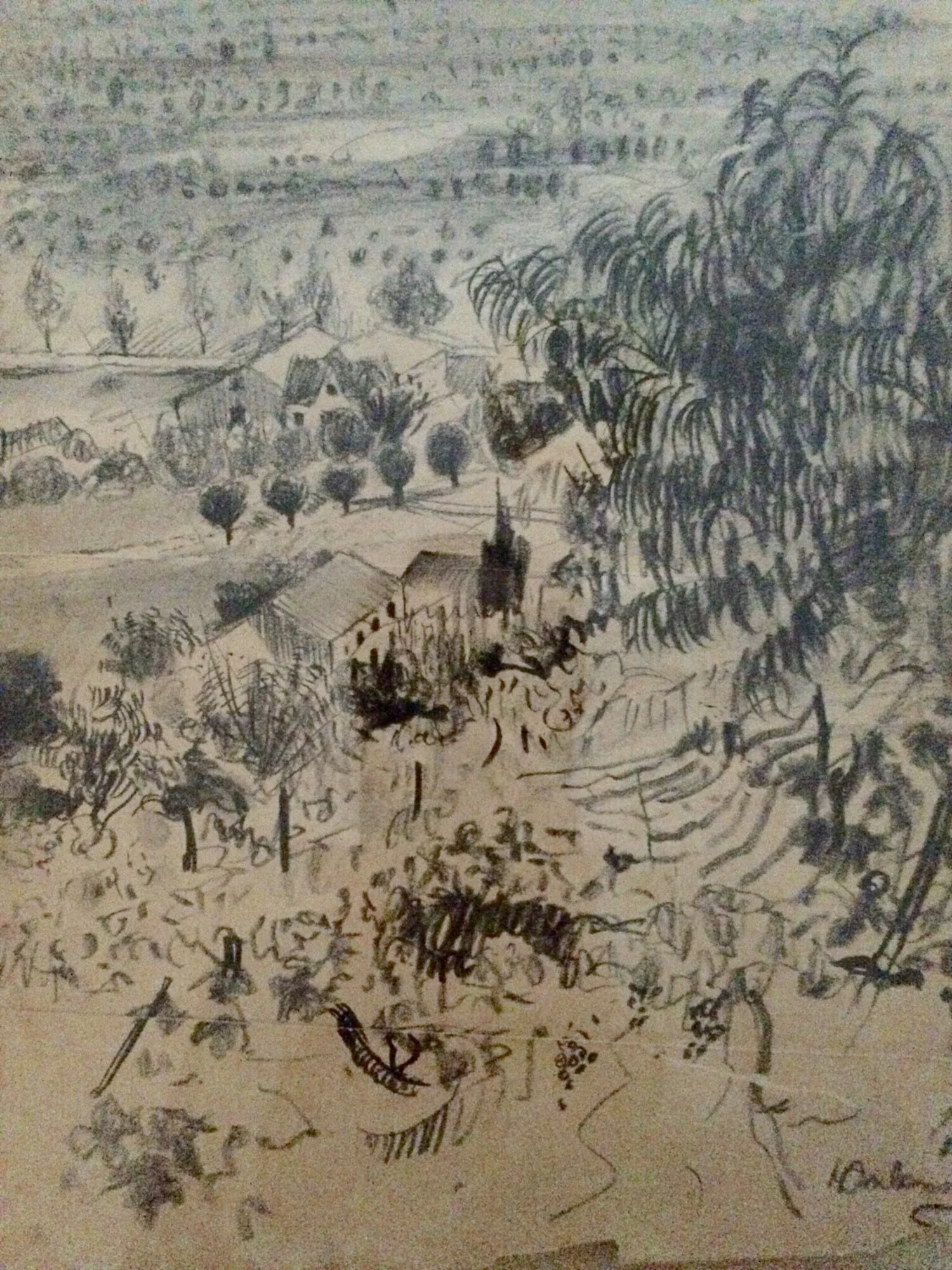An Early Inlander
This painting is from the 1950's when Henry Inlander won the Prix de Rome, which is still considered one of the most prestigious prizes in the world of painting. The painting is a view of the valley that sits beneath the village of Anticoli Corrado. The style is a mixture of Asian and Eastern European art, bringing Chagall together with some of the scroll paintings that are such an important of art in China.
A classic example of the ancient art of scroll painting in China
These similarities are not an accident because Inlander was a devoted student of art history and when he wasn't in his studio, he went to gallery and museum exhibitions nearly everyday. I am often asked why he was so interested in landscapes and why so little of what he painted has any references to urban life. My own sense is that he found some peace from the nightmares and depression that haunted him all his life. His landscapes were an imaginary space of repose and most importantly, a place to contemplate and to find some harmony. In that sense, he is more akin to some of the 19th century painters he loved, in particular, Cézanne. He was also profoundly influenced by Van Gogh and on the occasion of a massive retrospective of Van Gogh at the Haywood in London, he and I walked around in a frenzy as he commented on every work in the exhibition. He was also a lover of poetry, even though English was his third language after Viennese German and Italian. In the 1970's he became a close friend of the exiled Spanish poet, Rafael Alberti.
Alberti lived in Anticoli and gave this to Henry and his wife Antonia. Leopardi was one of Italy's greatest poets.
Here is one of Alberti's poems:
For Federico García Lorca
(Sal tú, bebiendo campos y ciudades)
Go, drinking fields and cities,
Transformed to a great deer of water,
Be the ocean of bright dawns,
The kingfisher’s nest on the waves.
That I might go on hoping for you, deadened,
A done reed, in the high solitudes,
Wounded by the air, and needing
Your voice, alone among the storms.
Leave me to write, frail cold reed,
My name in the running water,
Let the wind cry, solitary, river.
My name dissolved now in your snows,
Turn again to your upland slopes,
Deer of spray, king of the mountain stream.
*********
The heart of Alberti's work is centered on delving into exile and what diasporic experiences do to the people who live their lives away from their places of birth or upbringing. That is why he and Inlander became so close. More on the relationship between exile and creativity in my next blog entry.



